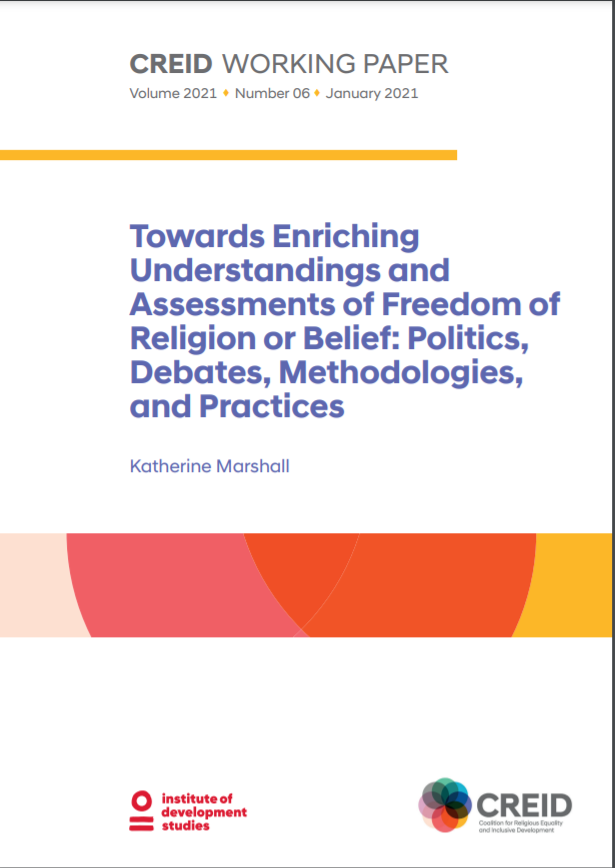 This Working Paper by Katherine Marshall reviews the complex landscape of approaches to assessing and measuring both the status of FoRB and the degree to which this human right is being violated or protected.
This Working Paper by Katherine Marshall reviews the complex landscape of approaches to assessing and measuring both the status of FoRB and the degree to which this human right is being violated or protected.
Promoting the right to freedom of religion or belief (FoRB) is a foreign policy priority for several countries, their concerns accentuated by considerable evidence of rising levels of violations of this right worldwide. This puts a premium on solid evidence and on clear assessment criteria to serve as objective guides for policy.
This paper reviews the complex landscape of approaches to assessing and measuring both the status of FoRB and the degree to which this human right is being violated or protected. It introduces and describes various transnational methodologies, both qualitative and quantitative, which focus, in differing ways, on violations. Several are widely cited and have express policy applications, while others have more indirect application to FoRB. The analysis highlights the diversity of approaches, which both reflect and contribute to a tendency to politicise FoRB issues. Challenges include differing understandings of the nature and relative significance of violations and their comparability. Country analysis is crucial because the specific context has vital importance for a granular appreciation for causes and impact of FoRB violations. This granularity, however, is poorly reflected in broader quantitative transnational and time series indices that highlight trends and comparative impact.
The review highlights the limited degree to which FoRB issues, specifically violations and religiously related discrimination, are integrated in the policies and practice of development approaches (including social change and progress towards wellbeing) internationally and nationally. Effective approaches to addressing violations are few and far between, especially at the international level. The review notes strengths and weaknesses of specific approaches to assessment and reflects on possible improvements focused on development challenges and better integration among aspects of human rights.
Citation
Marshall, K. (2021) Towards Enriching Understandings and Assessments of Freedom of Religion or Belief: Politics, Debates, Methodologies, and Practices, CREID Working Paper 6, Coalition for Religious Equality and Inclusive Development,Brighton: Institute of Development Studies
